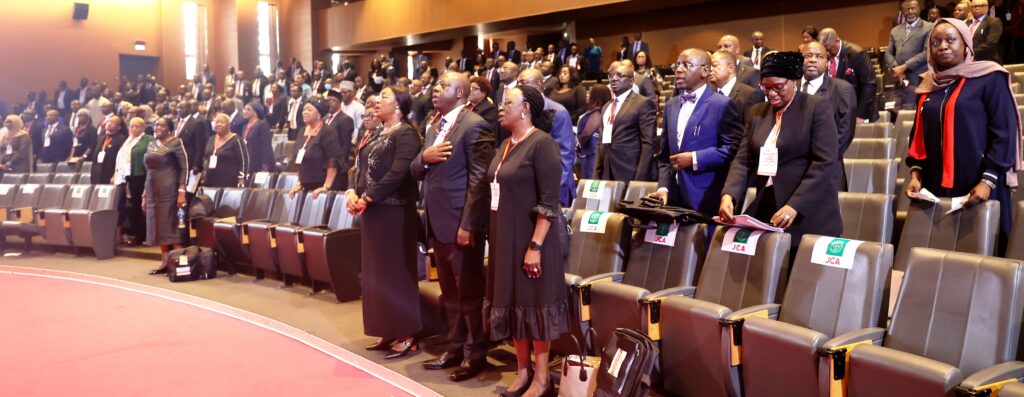Etim Effiong
Participants at the 6th Economic and Financial Crimes Commission, EFCC- National Judicial Institute, NJI’s Capacity Building Workshop for Justices and Judges have called on judges handling economic and financial crimes and other acts of corruption across the country to exercise more caution in the granting of restraining orders.
This call was made in Abuja on Wednesday, October 9, 2024, in a Communique issued at the end of the Workshop. According to the participants, comprising justices and judges of the Supreme Court, the Court of Appeal, high courts, prosecutors, investigators, anti-corruption experts, civil society groups, media executives and other stakeholders in the anti-corruption corridor, granting of unjustified restraining orders are posing challenges to the speedy resolution of corruption cases.
“Courts should be wary of granting unjustified restraining orders issued at the behest of government officials and suspects under investigation as this can erode public trust and confidence in the judiciary”, they said. Other highlights of the Communique are: “need for increased reliance on non-conviction-based asset forfeiture procedures in the forfeiture of assets, especially digital assets; need for judges with track records of handling economic and financial crimes cases to be designated to handle such cases, need for increased emphasis on intelligence-driven investigation that leverages existing information technology infrastructures rather than relying mostly on whistle-blowers.”
This was contained in a statement signed and made available to journalists by Head, Media and Publicity, EFCC, Dele Oyewale, on Wednesday, 9 October 2024.
Participants also emphasized the need for developing and sustaining synergy and coordination among all stakeholders in the administration of criminal justice in Nigeria as well as the need for law enforcement agencies to work closely with international law enforcement agencies such as INTERPOL, AFRIPOL and others to enhance efforts to combat cross-border financial crimes. To effectively address issues that arise in the investigation of Money Laundering /Combating the Financing of Terrorism (AML/CFT) cases, participants sought a more inclusive approach that involves all intermediaries, aligning with the country’s risk profile and fostering coordinated efforts among all stakeholders.
While maintaining that the judiciary stands as a critical stakeholder in the administration of justice, the Workshop admitted that the adjudicatory functions of the judiciary cannot be judiciously discharged without diligent investigation and prosecution by key agencies. To this end, the EFCC was enjoined to take advantage of the extant fast-track rules of court to expedite the trial of economic and financial crimes cases. Additionally, there is a “need for constant review of strategies, techniques and practices in the detection, investigation and prosecution of financial crimes to aid Anti-corruption agencies secure more convictions in high profile cases.
This is in addition to continuous training of Judicial officers and staff of Anti-Corruption Agencies to deal with new trends and best practices on digital forensics and other emerging typologies of economic and financial crimes”. Participants also called for strict adherence to Administration of Criminal Justice Act (ACJA) which provides a comprehensive framework for criminal justice procedures for the efficient and fair administration of justice in Nigeria.
EFCC Chairman, Ola Olukoyede, in a closing remark, appreciated all the participants and pointed out that Nigeria still stands out as a nation making success of asset recoveries across the world. “At every international gathering, Nigeria is regarded highly for its records of staggering recoveries of assets. I called on the judiciary to continue to offer us more support in tackling corruption cases”, he said.
The Workshop which was declared open by President Bola Ahmed Tinubu and was themed “Integrating Stakeholders in Curbing Economic and Financial Crimes”. It drew a mammoth crowd of stakeholders including former Secretary General of the Commonwealth, Chief Emeka Anyaoku, Senate President, President of the Court of Appeal, Attorney-General and Minister of Justice, Chief Justice of Nigeria, among others.

